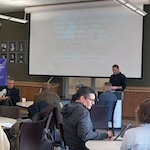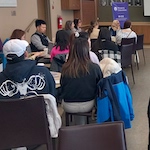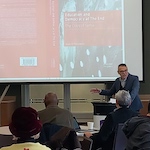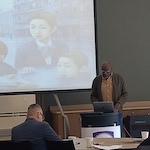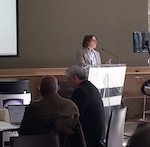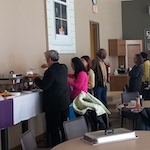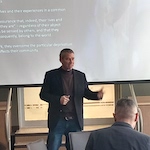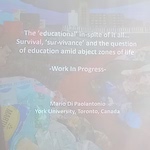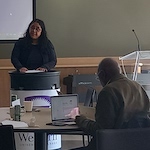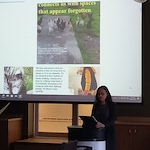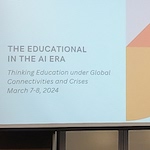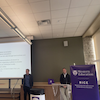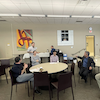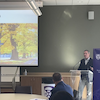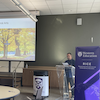Events

Upcoming Events
Recent Events
RICE Guest Speaker Series 2023-2024, Dr. Mario Di Paolantonio, March 7th, 2024, 9:30 am
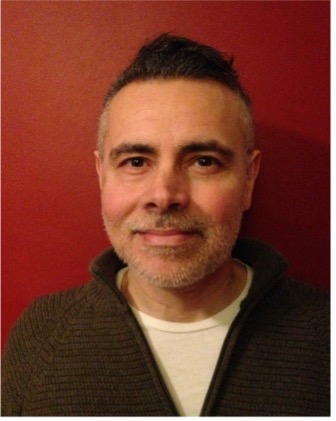
"Education and Democracy at the End: The foreclosing of the transgenerational sense of education”
Thursday, March 7th, 2024
9:30 am to 10:30 am
Community Room (FEB 1139) Scan the QR code to register or click on the link:
https://forms.gle/YaH2u3ufTtPJJeqr7
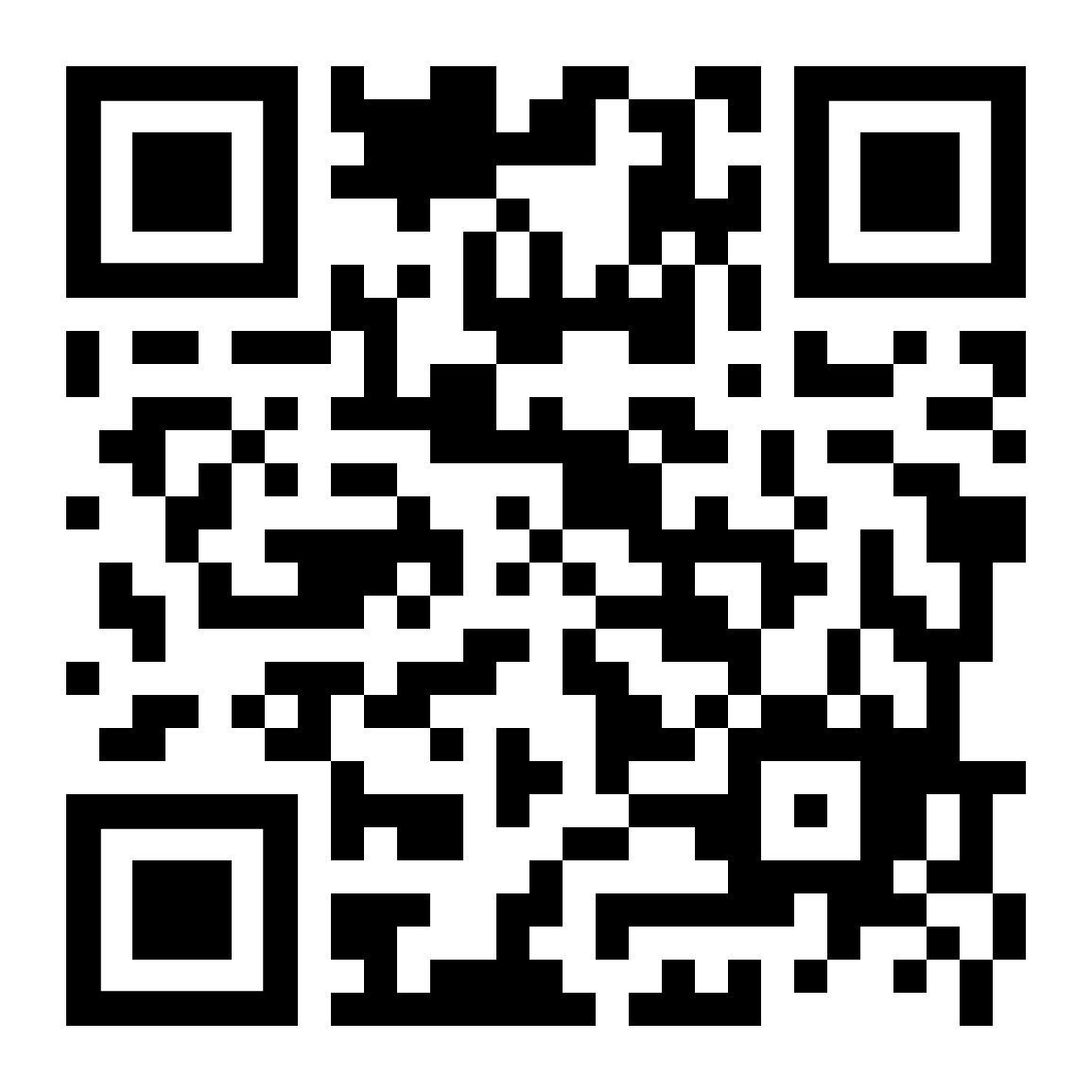
Mario Di Paolantonio is an Associate Professor of philosophy of education in the Faculty of Education, York University, Toronto. His international award-winning research explores how memorial sites attempt to pedagogically reckon with historical wrongs. Professor Di Paolantonio is an International Research Associate at the Centro de Estudios en Pedagogías Contemporáneas and the Escuela de Humanidades at the Universidad Nacional de San Martín (UNSAM), Buenos Aires, Argentina. He publishes in the area of philosophy of education, cultural theory, social and political thought, and memory studies. His recently published book is entitled, Education and Democracy at The End: The Crisis of Sense, Palgrave Macmillan, 2024.
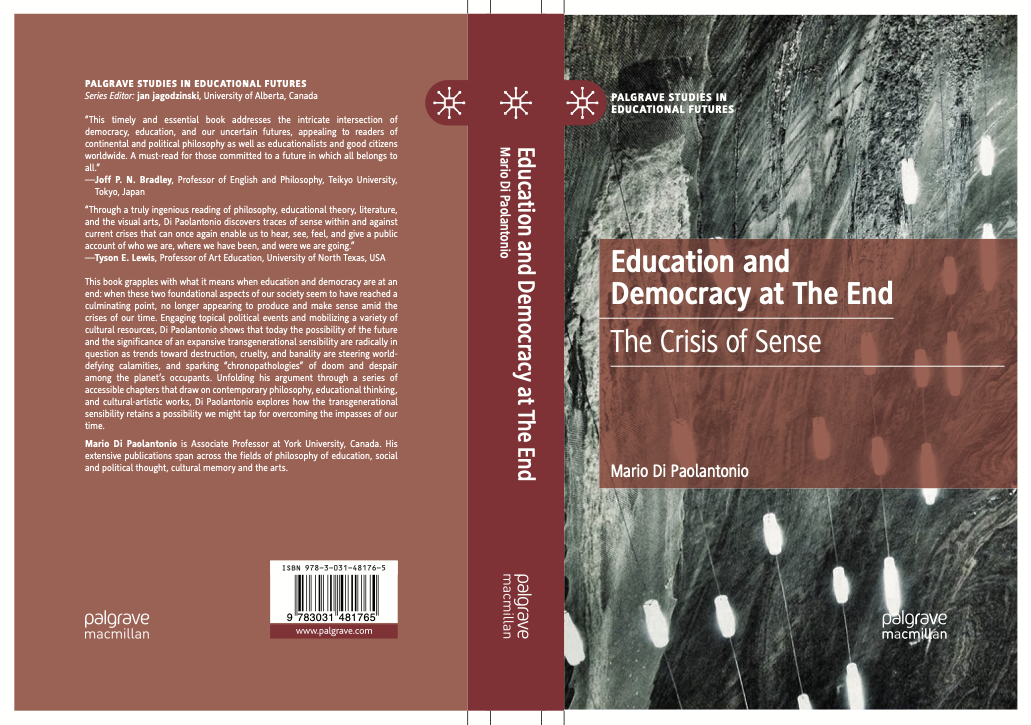
Abstract:
While the “crisis of thinking” has been rehearsed throughout the destitution and horrors of the 20th century, there is a different accent on the catastrophic today. The current eclipse of thinking besetting the public is symptomatic of a time marked by multiple planetary catastrophes, political-social impasses, and a surge of psychic-social maladies arising from the techno-economic overstimulation of the nervous system. These forces are aligning together with a never-before-seen world-defying ferocity. My paper is concerned with exploring what is at stake in the very possibility of education in these unnerving times, particularly for an education that can give us the time and place to think: to think profoundly and trans-generationally about our thought-provoking times. While education might be well placed to attune our senses and spark the thinking necessary to respond to the world, this paper grapples with how this potential is presently inflected by the logics of neoliberalism, resulting in a form of cruel optimism in education.
Central to my discussion is thus a critical consideration of how the predominant sense of “optimism” in education, which encourages individuals to continuously innovate and enhance themselves through perpetual learning, works against our common hope and collective striving for what is educational in education. At issue is how the transgenerational hope inherent in education, which plays a pivotal role in nurturing educational sensibilities and a thoughtful regard for the world, is being displaced by the prevailing neoliberal emphasis on the hyper-individualized learner. Through an examination of the normalization of the entrepreneurial learner, who views education as an investment for personal success to survive the existing economic uncertainty, we encounter a figure that largely remains aloof, lonely, and alarmingly indifferent (thoughtless) to their involvement in the broader transgenerational temporal implications of “passing on” that education affords.
In the final part of the paper, I turn to engage the depictions of neoliberalism’s figures and wastelands as portrayed by the late Japanese artist Tetsuya Ishida. Through a reading of select pieces of his artwork, I contemplate the general malaise and anguish felt by the younger generations, who have been ruthlessly subjected to the prevailing “cruel optimism” that characterizes our era. Like artists following the social realist tradition of the previous century, who bore witness to the struggles and afflictions faced by workers in the industrial age, Ishida serves as a witness to the harrowing realities of a novel form of capitalism that has fundamentally transformed both human sensibilities and its surroundings. Although Ishida’s body of work doesn’t offer any facile hope, as we’ll explore, in certain images, he gestures to the buoyancy and life-affirming potential of “passing on” a worldly repertoire that can spark a thoughtful regard, even in the direst of situations.
RICE Guest Speaker Series: Dr. Karen Pashby Mar 8, 2024 at 9:30 am
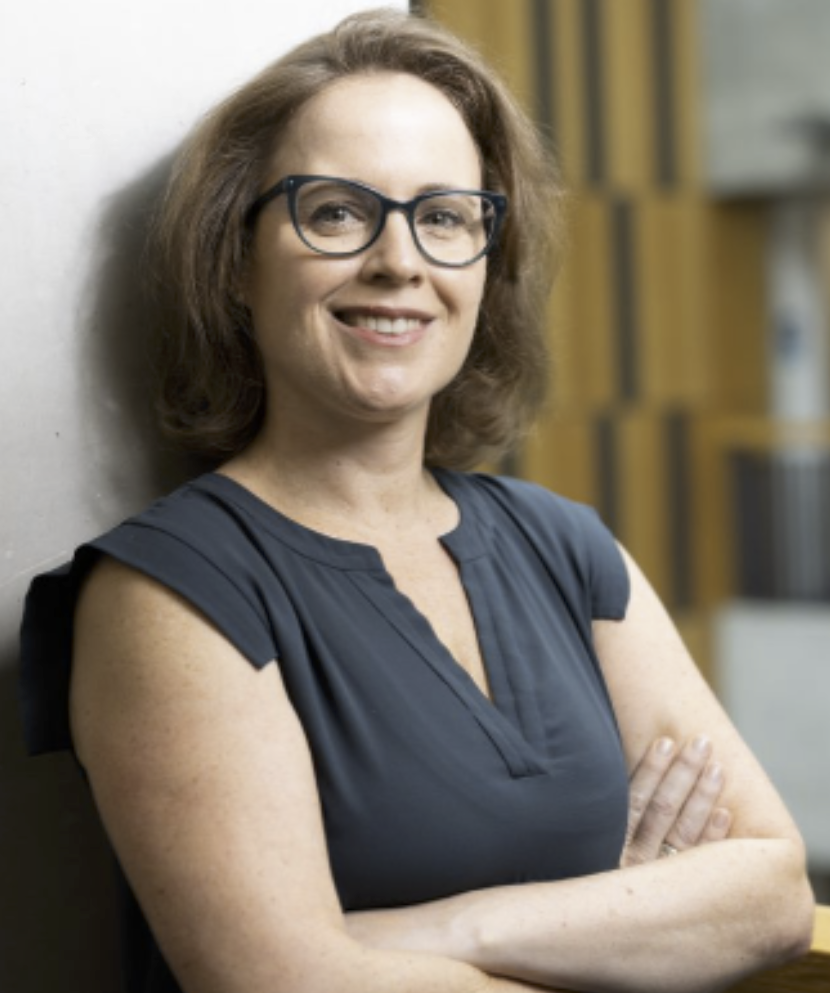 "Understanding and resourcing ethical global issues pedagogy: Reflecting on ‘participatory’ research with teachers in England, Finland, and Sweden"
"Understanding and resourcing ethical global issues pedagogy: Reflecting on ‘participatory’ research with teachers in England, Finland, and Sweden"
Friday, March 8, 2024
9:30 – 10:45 am
FEB 1139 Community Room
Scan the QR code to register or click on the link:
https://forms.gle/d63Z4HMETcuSxacM6
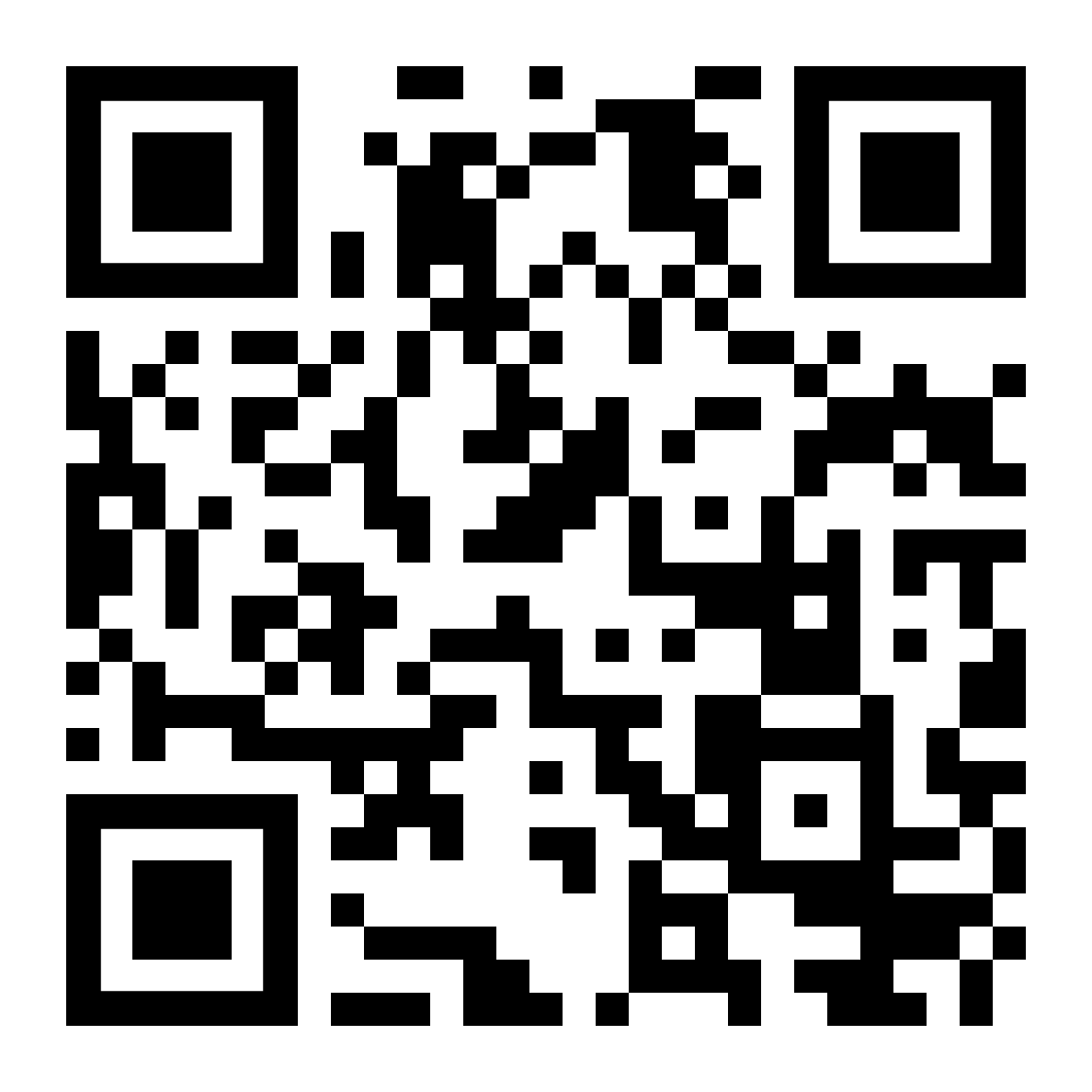
Karen Pashby is Professor of Global Citizenship Education at Manchester Metropolitan University and School of Education Department Co-Lead for Research, and President of the Comparative International Education Society of Canada (2023-2025). An experienced secondary school educator and teacher educator, her research draws on decolonial theoretical resources to examine how to engage productive pedagogical tensions in reflexive approaches to ethical global issues. Projects funded by the Academy of Finland, British Academy, Social Sciences and Humanities Research Council of Canada, and Swedish Research Council have involved participatory research with teachers in Canada, England, Finland, and Sweden.
In this talk, Dr. Karen Pashby will review a methodology that she and her colleagues have used to guide projects working with teachers, and she will share some findings from those projects. The projects aimed to both support praxis and contribute to empirical and theoretical research in the intersecting fields of critical global citizenship education and environmental and sustainability education. Dr. Pashby will raise some of the challenges and possibilities of this methodological approach.
RICE Guest Speaker Series: Dr. Marianne Larsen, Feb 2, 2024 at 1pm
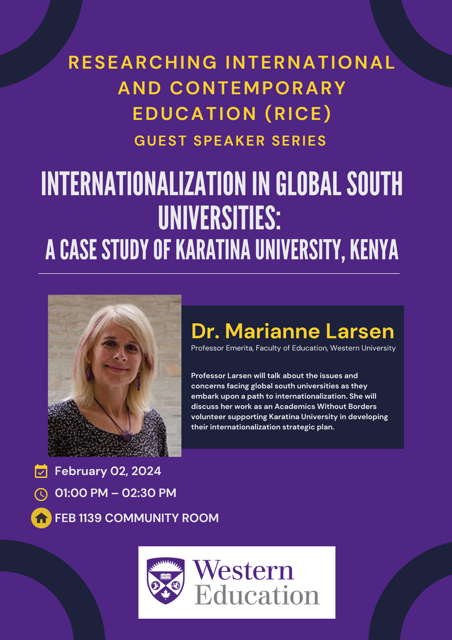
Dear Friends and Colleagues
The Researching International and Contemporary Education group (RICE) is pleased to invite all community members to the next talk in our Guest Speakers series.
Internationalization in Global South Universities: A Case Study of Karatina University, Kenya
Dr. Marianne Larsen, Professor Emerita, Faculty of Education, Western University
Dr. Larsen will speak about some of the issues and concerns facing global south universities as they embark upon a path to internationalization. She will discuss her work as an Academics Without Borders volunteer supporting Karatina University in developing their internationalization strategic plan.
Date: February 2nd, 2024
Time: 1:00pm - 2:30pm
Location: Faculty of Education’s Community Room (FEB 1139).
Oct 23, 2023 @3pm – Guest Speaker: Dr. Eric Hartman
(Executive Director of the Center for Peace and Global Citizenship at Haverford College, PA, USA )
A Civics of Interdependence: Colonial and Liberatory Conflict and Collaboration from Pennsylvania to Ontario Embracing the truth of interdependence calls us toward new kinds of civic, ecological, and global understanding. This understanding begins from the foundational reality of interdependence and hybridity as our human-ecological condition. It asks how we operate ethically within the communities and systems of which we are part and which support us, concretizing the global through the specificity of the local. YET - many of us are rather unfamiliar with "the local," and particularly its relationship with (historically formed) transnational processes. Our school curricula often draw our attention toward national and culturally-essentialist narratives; centuries of white supremacist institutional and curricular imaginations continue to influence normative narratives; and our extraordinary access to both global and social media platforms provide us opportunities to learn and engage deeply, though without any necessary connection with place. Dr. Hartman will draw on specific examples that bind the regions around London and Philadelphia to illuminate the concept of a civics of interdependence, before offering examples of how educators can access related flipped- classroom tools. While some examples and tools will be offered, many more questions will be opened, with an opportunity for discussion following the presentation.
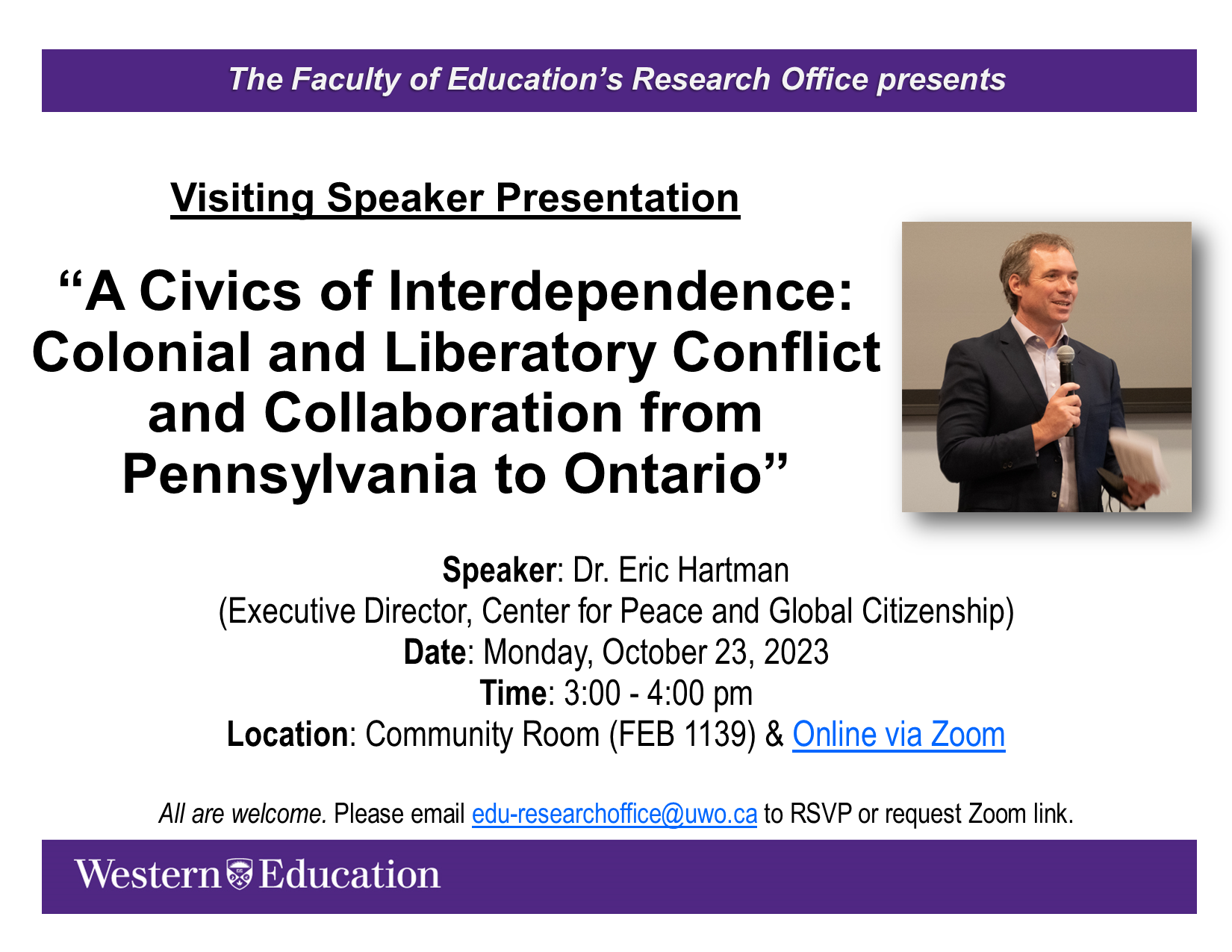
Click Image to see slideshow
RICE Welcome Event, Sept. 15, 2023
(FEB 1139 Community room)
Dear members of our Education community:
Re: Researching International and Contemporary Education (RICE) On behalf of the 2023-24 RICE organizing committee (Gus Riveros, Melody Viczko, Veronica Pacini-Ketchabaw, Immaculate Namukasa, Julie Byrd Clark, Prachi Srivastava, Hasan Bayraktar and Haoming Tang), I am writing to inform you of our plans to run a series of events in the coming academic year.
The overarching theme for the year is: Thinking Education in Times of Global Connectivities and Crises.
We invite you to attend our first welcome/social and planning event at the Community Room (1139) on Friday, September 15 @1:30 pm. We will be sharing information on our theme and on a few of our already planned RICE events as well as invite old and new members to suggest ideas for additional RICE events and initiatives. Light snacks/refreshments will be served.
If you are interested in participating in RICE, but unable to attend this opening event, pls send an email to Hasan at the following email below so he can add you to our RICE listserv, to keep you abreast of upcoming events and notices:hbayrakt@uwo.ca
All best,
Dr. Paul Tarc
Click Image to see slideshow
Global Citizenship Education: Conversations and Collaborations. December 8, 2022
Please join us at an event at the Faculty of Education for administrators, teachers, teacher-candidates, and teacher-educators focused on conversations about pedagogy and collaborations for global citizenship education
Guest Speakers:
-
Dr. Lynett Shultz:
UNIVERSITY OF ALBERTA
The Power of a Global Classroom: Global Citizenship Education as Worldmaking
-
Dr. Paul Tarc
WESTERN UNIVERSITY
Translating and Mobilizing ‘A New Social Contract for Education’: Illuminating and Supporting Teachers’ Worldly and Critical Pedagogies
Envisioning the/another university as responsive to the times: What might be possible and how might it come into being? December 12, 2022
The uses of the university, by Clark Kerr (1966), former Chancellor of UC Berkeley, reinvigorated a rich literature on the nature, purpose, and roles of the university (e.g.,Newfield, 2016). Canadians, too, are concerned with the place of this key institution of our social architecture (e.g. Fallis, 2007). Do Dennison’s words ring true or perpetuate an unproductive trope. Recently, the Presidents of McGill University and Université de Montréal, Suzanne Fortier and Daniel Jutras, urged “Let’s use universities to restart Montreal” (Montreal Gazette and La Presse 30 October 2020). They signal a readiness to marshal their institutions to confront change, adapt, and serve the public good. But how do we light the path forward? Leaders, researchers and citizens are asking: whose university? Serving whom? Indeed, by whom and to what ends?
Panelists:
- Prof. Candace Brunette-Debassige, Faculty of Education
- Prof. Kate Korycki, Department of Gender, Sexuality, and Women's Studies
- Prof. Wolfgang Lehman, Department of Sociology
- Prof. Melody Viczko, Faculty of Education

